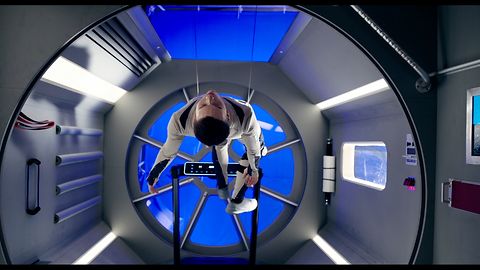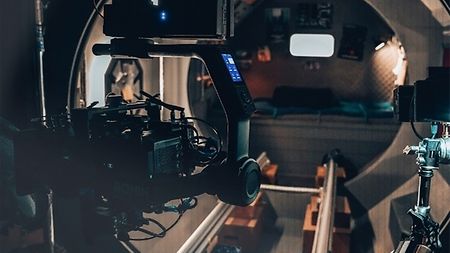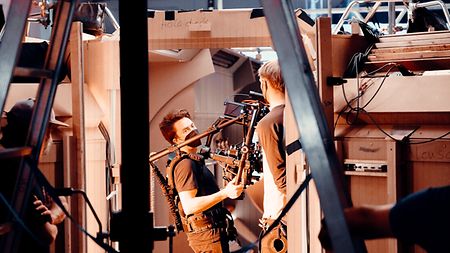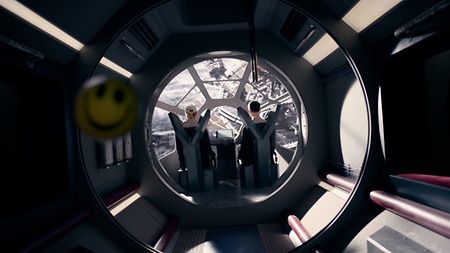Starting in 2021, ARRI Rental has pledged to recognize stand-out graduation films made by students at the HFF Munich film school with the Franz Kraus Production Award. The winner receives up to €50,000 towards camera, lighting, and grip equipment. In its first year, the award attracted so many high-quality submissions that three projects were chosen to share the prize. One of them is the lehof FICTION production "Almost Home," by director Nils Keller, producer Jonas Lembeck, and cinematographer Georg Nikolaus. The short film is also one of the winners of the 2022 Student Academy Award® in the category "narrative".
In "Almost Home," astronaut Nico takes her son Jakob with her on a two-year trip to Mars, hoping to cure an ailment that restricts him to a wheelchair on Earth. Just before their return, however, they learn that a pandemic has broken out. Concerned for the wellbeing of her immuno-compromised son, Nico wants to turn back to Mars, but Jakob is tired of being isolated and wants to get back home. And so the conflict between the two unfolds.
In this interview, cinematographer Georg Nikolaus talks to us about how this complex graduation film came about, and was filmed in just 11 shooting days. ARRI Rental Munich provided the ARRI ALEXA Mini LF and the Hover Dolly.
What look did you want for the film?
"Almost Home" is a coming-of-age story in a science fiction setting. The visual imagery focuses on the relationship between mother and son, and the changes it undergoes, with one key turning point that we wanted to accentuate in particular. At the start of the film, Jakob experiences weightlessness and the freedom it gives him with his condition. But then gravity kicks in again, confronting him bluntly with his disability. We symbolized that with a stark contrast: the camera initially floats around with Jakob exploring the freedom of weightlessness. Afterwards it is locked in, as if in cement. As Jakob's body then recovers, the camera also gradually learns to walk again.
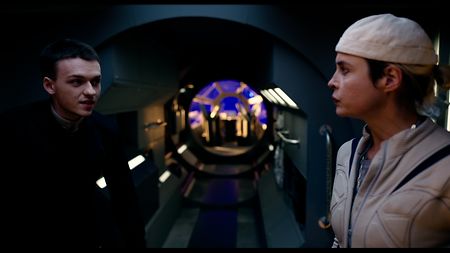
Jakob (Jeremias Meyer) and his mother Nico (Susanne Wolff)
